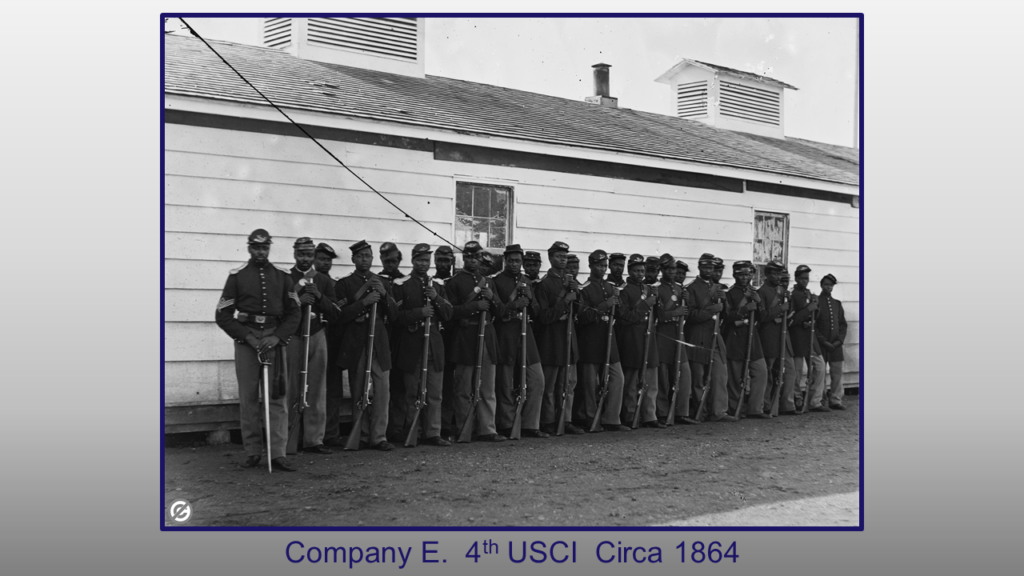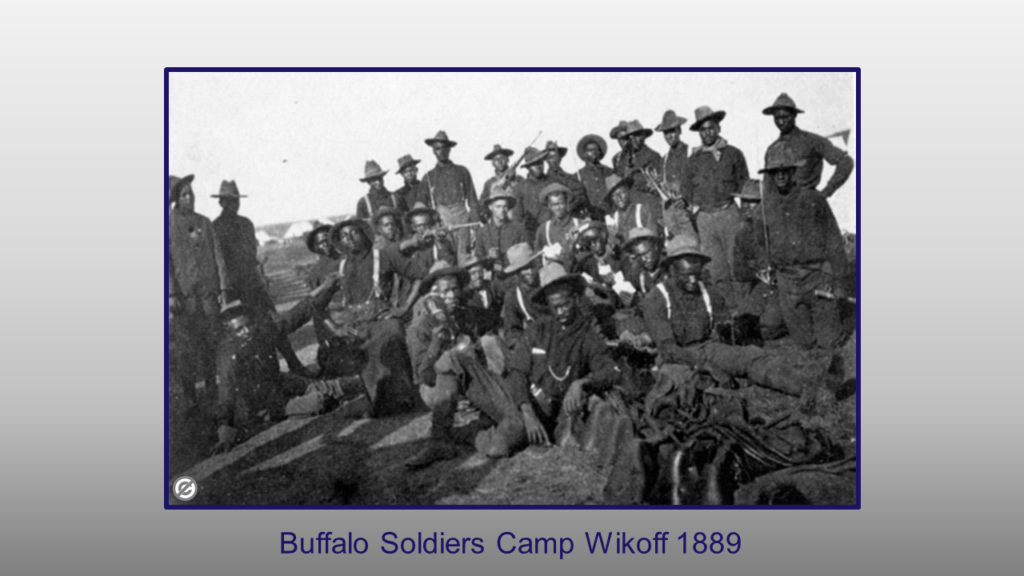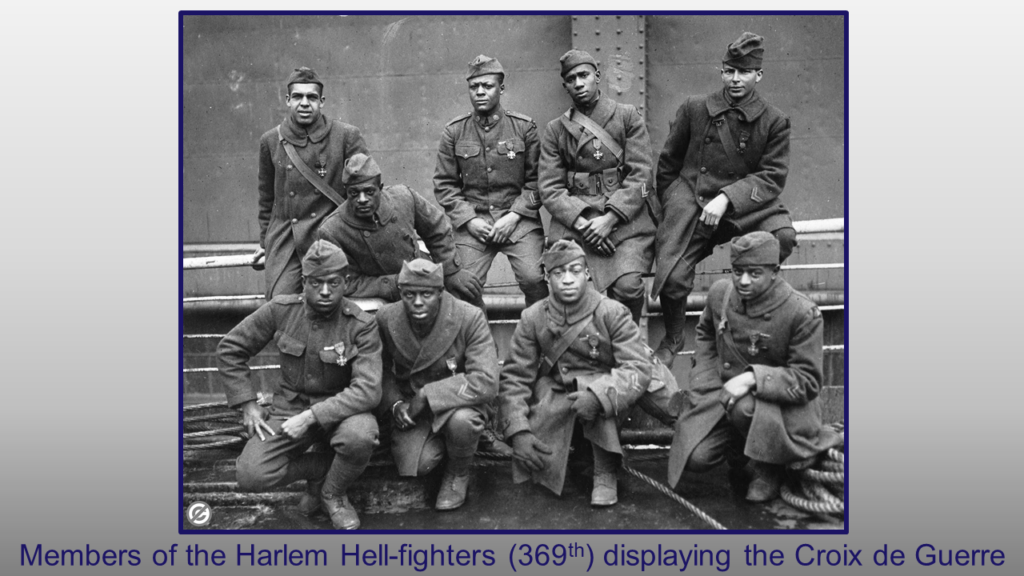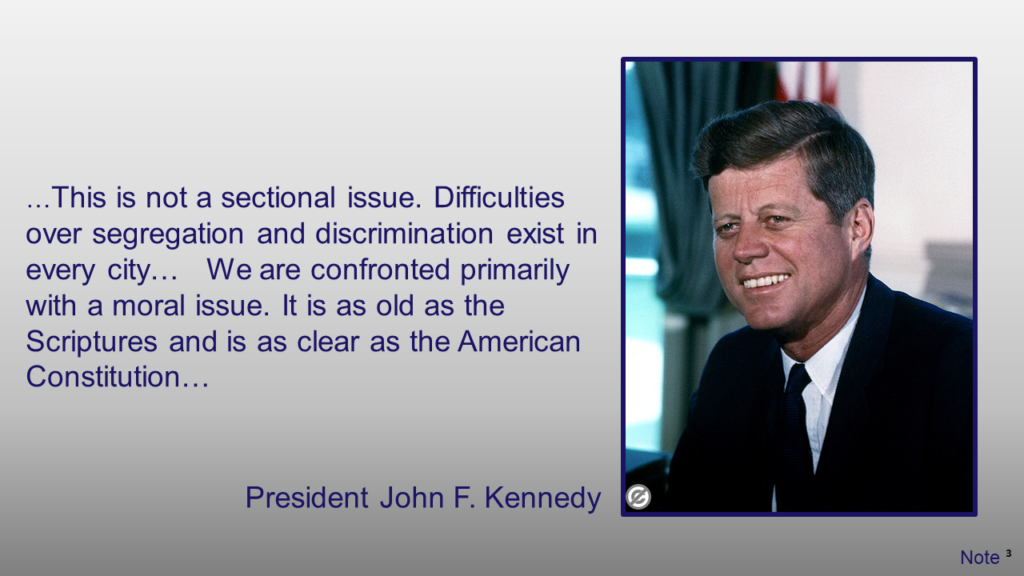The Berlin Airlift is one of my favorite historical projects, and this is the fourth and final post on the topic.
Introduction
During my research for this series of posts I read numerous books and articles, none of which even hinted at the segregated military that governed post war Germany. Then, I discovered a New York Times Magazine article from February this year, titled; “When Jim Crow reigned amid the rubble of Nazi Germany”, by Alexis Clark*.
Given the current civil rights situation it gave me pause, and I decided to add an additional post to the series.
Am I just trying to sully what was arguably America’s finest hour?
No! America did step up and underwrote the freedom of millions of Europeans (certainly 2.25 million Berliners). However, as someone who grew up in Europe, it is difficult to understand the dichotomy of a nation that could rail against the Soviet or Nazi persecution, whilst treating a section of its own population in a shoddy and underhand way.
A New Nation
How did this come about?
Back in the 1776, residents of what would become the United States of America
“brought forth on this continent, a new nation, conceived in Liberty, and dedicated to the proposition that all men are created equal.”
It was the outcome of Enlightenment thinking, but there was a problem. Just as in George Orwell’s “Animal Farm”, all were equal, but some were more equal than others.
The new republic would struggle with the question of slavery for its first four score and four years. Periodically the divisions would build to bursting point, only for a last-minute compromise to be agreed, and the status quo resumed, for a few more years.
A House Divided
The 1860 election of Abraham Lincoln as the 16th President of the United States, proved a tipping point. Southern states began to secede from the Union and formed the Confederate States of America. Representatives of these states and the Confederacy made it clear they were leaving to preserve their “peculiar institution”, in both written and spoken word.
The forces of South Carolina besieged the Union garrison at Fort Sumter, in Charleston bay, and prevented U.S. naval forces from relieving it. On the 11th of April 1861 Lincoln called for 75,000 volunteers. On the 12th South Carolinian forces opened fire on the fort, and it surrendered the following day.
The Civil War had begun.
Both sides started the war with all white armies and would continued so until 1863.
Union General Benjamin Butler’s action in May 1861 started a process that would eventually lead to the recruitment of African Americans into the Union Army. When a southern officer demanded the return of 3 slaves who had escaped to the Union lines, Butler refused, neatly turning the Southern arguments against them. He reasoned that since they were considered in the south as property and were being used to further the war aims of the Confederacy, he would retain them as contraband of war. Butler a political appointee proved to be a better lawyer than general.
This practice was continued and extended and soon every Union camp would have numbers of “contraband” associated with it, eventually these former slaves were being paid to perform various tasks about camp. However, there was resistance to the suggestion that they could serve as soldiers.
By 1863, following the Emancipation Proclamation¹, the pressure increased, especially in abolitionist leaning states, to form regiments of African Americans. One of the first being the 54th Massachusetts famous for its attack on Fort Wagner, depicted in the movie Glory. African American regiments would go on to serve with distinction for the remainder of the Civil War.
The Bureau for Colored Troops was formed on the 22nd of May 1863, and many of the state regiments were incorporated into Federal service, under the designation United States Colored Troops. (USCT)

They had to overcome many more obstacles than their white comrades.
- Until June 1864 they were paid only $7/month whereas white soldiers received $13/month. (some units steadfastly refused to accept any wages, but continued to serve, until the inequality was addressed)
- Confederates would not treat the USCT as prisoners of war and they were killed and often tortured, out of hand. This was also often the fate of their white officers. This practice was ended (at least officially) when General Grant indicated that if the practice did not cease, the Union would reciprocate.
- Even in the North there was prejudice and many Union Generals did not believe the USCT would fight. (Time and again they were proved wrong) General Thomas (more of him in a later post) a Virginian who remained loyal to the Union, was one who was won over by their performance. After one battle when asked if the dead should be separated for burial, he replied that they fell together let them be buried together.
During the war 25 African Americans won the – newly created – Medal of Honor.
On June the 19th 1865 General Granger proclaimed emancipation in Galveston Texas.
“The people of Texas are informed that in accordance with a Proclamation from the Executive of the United States, all slaves are free. This involves an absolute equality of rights and rights of property between former masters and slaves, and the connection heretofore existing between them becomes that between employer and hired laborer.”
This was followed by the ratification of the 13th amendment in December 1865 freeing all slaves, the 14th amendment guaranteeing equal treatment under the law in 1868, and the 15th Amendment in1870, giving voting rights to all.
For those African Americans who had fought and bled for the Union it seemed that justice would prevail and “that this nation, under God, shall have a new birth of freedom”.
Some would remain in the Army in the new regular regiments, (24th and 25th infantry; 9th and 10th cavalry), the famed Buffalo Soldiers, serving in the Indian and Spanish American wars.
The 10th cavalry served with distinction at the battle of San Juan hill, but were overshadowed by the publicity seeking Teddy Roosevelt and his “Rough Riders”
During the Indian and Spanish American wars 24 African Americans won the Medal of Honor.

By then the early promise of the post war years had been quashed and replaced by the draconian “Jim Crow” laws in southern states. These nullified all the gains of the 13th ,14th and 15th amendments, and African Americans found themselves in a separate but decidedly unequal situation.
World War One
Despite this when the U.S. entered WWI African Americans again stepped up to serve their country in the segregated military.
General Pershing the commander of the American Expeditionary Force (AEF), was adamant that U.S. troops would serve together under American command, well the white units anyway.
Many African American units were assigned to labor and other non-fighting roles, but several were split off and assigned to the French army and would serve for the rest of the war with distinction. (This is why pictures of the time often show them in American uniforms but with French equipment, weapons, and helmets)
Again, despite exemplary service they returned home to the same prejudice.
During WWI only 2 African Americans won the Medal of Honor, and those only decades after the events. Probably due to the increased systemic racism.

World War Two
WWII saw the same segregation and dismissive attitudes.
Not only was the military segregated but, the American military wanted to introduce the same segregation in Britain as they had at home, a move unpopular with the British public.
Lynne Olsen in her book the “Citizens of London” describes the British reactions to the segregation attempts.
How bus conductors would tell African American servicemen they did not have to give up their seat, “You are in Britain now.”
The British military acquiesced to American requests for segregation, and on one occasion when this was being explained to British servicemen, they hooted and compared it to the Nazis.
To avoid clashes the American military would try to stagger passes to keep black and white servicemen apart. However, when they called for pubs to be segregated, with typical British bloody mindedness, some landlords put up sign “Brits and Blacks only”.
She recounts one Brit’s, possibly, apocryphal comment.
“I don’t mind the Yanks, but I don’t care much for the white fellows they brought with them”.
I do not want to give the impression that white Americans were universally disliked, because that was not the case, there is ample evidence of warm relationships between, both black and white, American servicemen and British families. There were also many G.I. brides who moved to America after the war. After D-Day the military postal service said that around a third of all mail from servicemen in Europe had British addresses. It was just the British sense of fair play. (This is not to deny that Britain had its own religious, class and racial prejudices, but those are for another day)
Alexis Clark* in her article gives several examples of exemplary service from black units, including the 761st Tank Battalion and the Tuskegee airmen.
As with WWI there were no African Americans awarded the Medal of Honor, at the time or shortly after the war. Eventually in in 1997 President Bill Clinton awarded 7 Medals of Honor. (6 posthumously)
Post War
By the time of the Berlin Airlift little had changed, and African Americans were still second-class servicemen, and citizens.
But as in Britain they were popular with the local Germans.
In her article Alexis outlines the fact that the conditions of African Americans were being documented by the NAACP and the press and that it was becoming problematic, because whilst the U.S. was pushing for free and fair elections in Europe and attacking the Soviets for shady practices, some of the servicemen in Germany to oversee those elections did not have the same rights to vote at home. The Soviets of course used these facts to deflect whenever they were pressed on fair elections.
President Truman formed a Presidential committee to review the situation. Its report suggested several reforms, one of which was a desegregated military.
So, on the 26th of July 1948 Harry Truman signed an executive order desegregating the military. There was much foot dragging but it was finally put in place. It took 40 years until the only African American to date became Chairman of the Joint Chiefs of Staff. (General Colin Powell)
Whilst the army was desegregating the civilian world also took some torturous steps forward.
- May 1957 – The Supreme Court in Brown v Board of Education effectively ended school segregation
- September 1957 – The Civil Rights Act 1957, protected voting rights
- July 1964 – The Civil Rights Act 1964 protected against employment discrimination.
- April 1968 – The Civil Rights Act 1968 protected equal housing rights.
Things had not moved far in the hundred years since the 15th Amendment.
Conclusion
Where does that leave us fifty years later and why are we still, arguing about civil rights, and police conduct.
Cast your mind back to the first post in this series and you will recall that I mentioned that the allies were very clear at the start of the occupation of Germany that the German people must understand that they lost the war.
Why?
Because after WWI elements in Germany formulated a false history called “The stab in the back”. In that history the German army was not defeated but was betrayed by politicians and Jews. This false narrative was eventually taken up by the Nazis, and we all know what happened next.
Our current problems I contend also stem from a false narrative by a defeated combatant.
“The Lost Cause”
- The Civil War was about States’ Rights or whatever, but NOT about slavery.
- The South just wanted to keep pure the ideals of the founders.
- It was impossible not to accept they had lost; the defeat was just too decisive.
- Although a Southerner could whip 10 Yankees, there were just too many Yankees, too many Green Backs². The cavaliers performed heroically but, in the end, the thuggish Yankee overcame by brute force.
If these false narratives continue to be perpetuated, we will struggle to move forward.
There should be no debate on Confederate battle flags or Army base names.
The South seceded to protect slavery and those who fought and killed US soldiers in that war were traitors.
For those currently saying we cannot forget our history, I say absolutely, we should remember our history, not some lost cause fantasy.
If we do that, maybe, we can move forward on the more serious civil rights issues.

African Americans have proved that despite prejudice, they are willing to step-up when the Republic calls. We owe it to them to give preference to their perspective, over that of those who sought to tear our Republic down.
What part of:
“one Nation under God, indivisible, with liberty and justice for all.”
is not clear?
Top Lesson for Project Managers
If you have a failed project, perform rigorous analysis, and resist the temptation to come up with a soft, face-saving narrative, it will only lead to many future difficulties and unintended consequences.
Notes
*You can view the article here: https://www.nytimes.com/2020/02/19/magazine/blacks-wwii-racism-germany.html
¹ Lincoln announced the Emancipation Proclamation on the 22nd of September 1862, and it went into effect on the 1st of January 1863. The proclamation freed the slaves ONLY in those states in rebellion. This was done as a matter of expediency. It was enough to prevent any European nations from recognizing the Confederacy, but not enough to force the border slave states to leave the Union. Only those slaves who were close to and able to reach Union lines benefitted. The numbers would increase as the Union armies captured more of the Confederacy.
Green Backs were paper currency issued by the U.S. government during the Civil War. (They had green backs, hence the name) They were legal tender.
³ JFK Civil Rights address 11th June 1963 https://www.americanrhetoric.com/speeches/jfkcivilrights.htm

Superb article Jim!
A completely unexpected concluding article. And super-relevant and important in July 2020.
Keep up your good work.